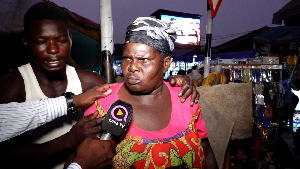Bolgatanga, Nov. 17, GNA - More than four-fifths of the world's population still do not have access to the Internet and are, therefore, being hindered in various ways from making progress in education and production, "The Social Watch Report 2006" has announced.
Under the sub-heading "Digital Gap, People Gap," the Report, which was launched recently at the Ghana International Press Centre in Accra, said although a lot had been heard about the Information Society for some years now, there had been a persistent unequal access to communication technologies, a situation which was currently generating new inequalities in terms of social development.
"In the information society, a world democratic order depends on equal participation for all in the global information flow," the Report stated, but indicated that the prevalent trend, however, was one of great inequalities in access to this flow, giving rise to what had become known as the "Digital Gap."
According to UNESCO, about 90 per cent of Internet users are resident in the industrialized world, with the United States and Canada accounting for 40 per cent of the figure.
Access to personal computers is a prerequisite for access to the new sources of information, the Report continued, and indicated that countries which were most deficient in this facility were all located in the world's poorest regions which had the greatest need for insertion into the information society in order to make progress.
The Report asserted that scientific and technological development of any given country depended to a large extent on Government decisions, and that indicators such as public spending on research and development could give a clear idea of how governments were performing in this respect.
It cited China as one country that had leapt from almost no broadband subscribers to 23 million subscribers in just three years mainly as a result of a vast increase in State investment in research and development, which jumped from 0.83 per cent of GDP in 1999 to 1.23 per cent in 2002.
It added that whereas in the Middle East, Southern Asia and sub-Saharan Africa less than 2 billion United States Dollars had been invested in Information and Communication Technology (ICT) to date, Latin America and the Caribbean had sunk more than 20 billion US Dollars into telecommunications projects.
"One of the main challenges facing the world in the new millennium is to narrow this gap," the Report emphasized, saying that State intervention was clearly a key factor.
Social Watch Report 2006 was published by the International Secretariat of Social Watch in Montevideo, Uruguay, with funding from the Ford Foundation and Novib/Oxfam Netherlands.
Its contents include country-by-country indicators on progress/regression, and global indexes on basic capabilities and gender equity.
General News of Friday, 17 November 2006
Source: GNA












